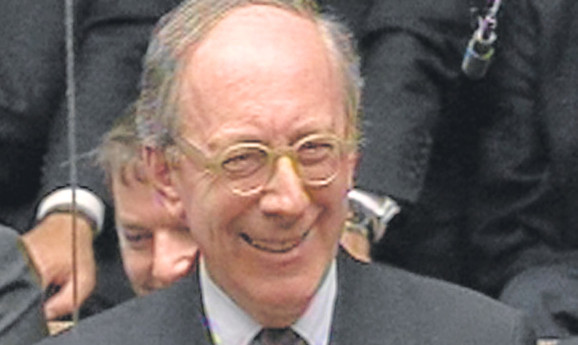
In the week of Margaret Thatcher’s funeral her Scottish Secretary has predicted a battering for the SNP in next year’s referendum on independence.
Sir Malcolm Rifkind served under Mrs Thatcher throughout her 11 years in government, first as a junior minister then in Cabinet from 1986 as Scottish Secretary.
Now representing posh London seat of Kensington and Chelsea in London, he said: “Neither the people of England nor of Scotland have the remotest interest or desire to see the UK broken up. Someone once remarked that you should never commit suicide because you might live to regret it.
“The only issue is not who will win but what the size of the majority will be. If, as is entirely likely, we have a majority of 70-30 or something of that order then even the SNP will have to
recognise that they do not speak for anything other than a relatively modest minority of the Scottish people on the matter of trying to break up the UK.”
Some blame Rifkind and his old boss for the fact there is an independence debate at all.
The accusation is that had they been more sensitive to Scottish feeling during their time in office there would not have been the desperation for devolution that helped bring New Labour to power robbing Rifkind of his Edinburgh seat and led to the establishment of a Scottish Parliament which the SNP now control.
He dismisses that view. “It’s absurd to say that Mrs Thatcher was responsible. The devolution issue didn’t begin with Margaret Thatcher, it began as a result of Winnie Ewing winning the Hamilton by-election in the 1960s.”
He added: “Scotland’s problems with Margaret Thatcher are no less and no more than those of Durham or Liverpool or wherever.
“The political divide in the UK is not between Scotland and England, it is between North and South and North begins somewhere in Yorkshire.
“It is nonsense to say this is a Scotland versus England issue.
“There are Conservative councillors today in Edinburgh, Glasgow, Dundee and Aberdeen. There are none in Manchester, Newcastle or Liverpool. So looked at from that perspective Scotland is more Conservative than the north of England.”
The most vociferous criticism of the reported £10 million cost of Mrs Thatcher’s funeral has come from those areas that never voted for her.
Sir Malcolm, who was at her St Paul’s Cathedral send off, smiled: “One mustn’t confuse a fuss with the fact that one or two people raise the issue. You will always find some people who will complain but so what? The vast majority of people see the funeral as appropriate.
“I’m not saying that because people complain they don’t have a point of view. But it’s not the Government imposing it against the will of everyone. The whole House of Commons with the exception of George Galloway and Dennis Skinner was united that this was something fitting.”
That sounds like Thatcherite rhetoric, recognising there’s another point of view then steamrollering over it.
When the Commons was recalled immediately following Baroness Thatcher’s death to pay tribute, Sir Malcolm was the star turn with a warm, witty and well-delivered speech.
He said: “She must be in the pantheon of the most important prime ministers. What makes her one of the greats is a number of factors. The first woman PM is an important historic development, she had a very radical domestic agenda which has stood the test of time and then on top of that she quite definitely did help ensure that the Cold War came to an end without a shot being fired.”

Enjoy the convenience of having The Sunday Post delivered as a digital ePaper straight to your smartphone, tablet or computer.
Subscribe for only £5.49 a month and enjoy all the benefits of the printed paper as a digital replica.
Subscribe